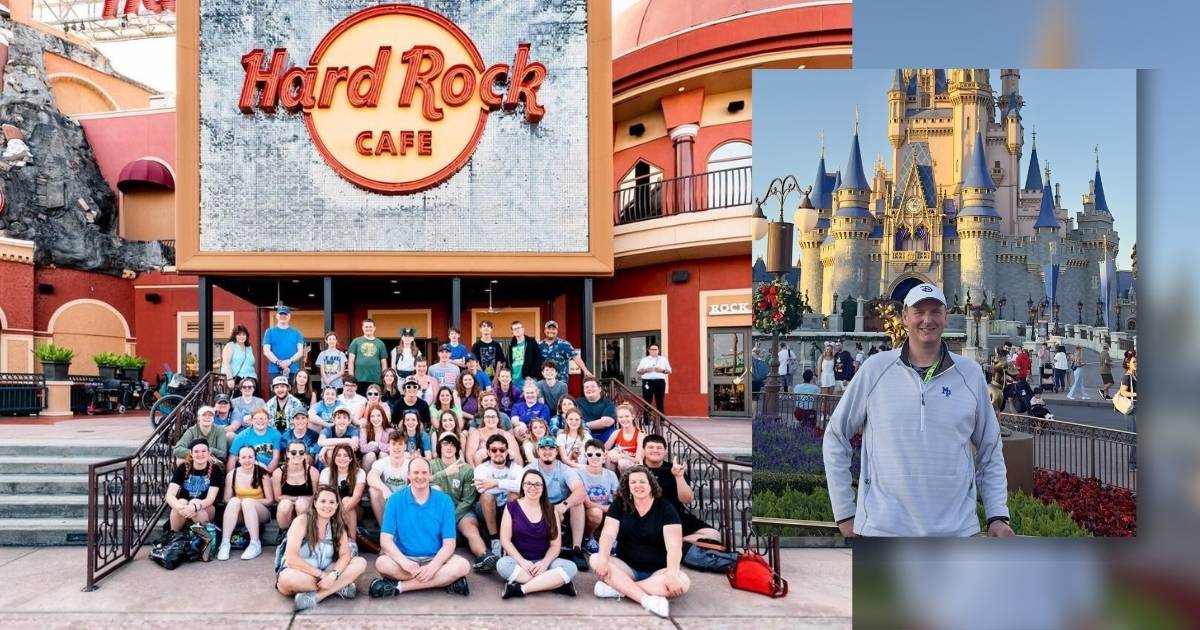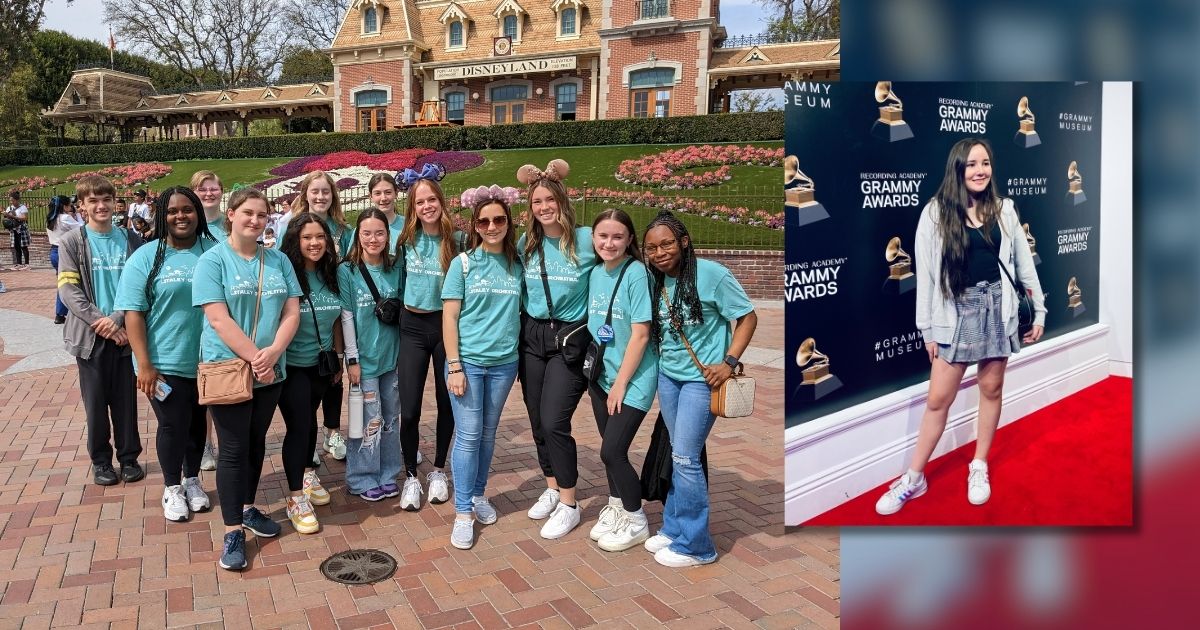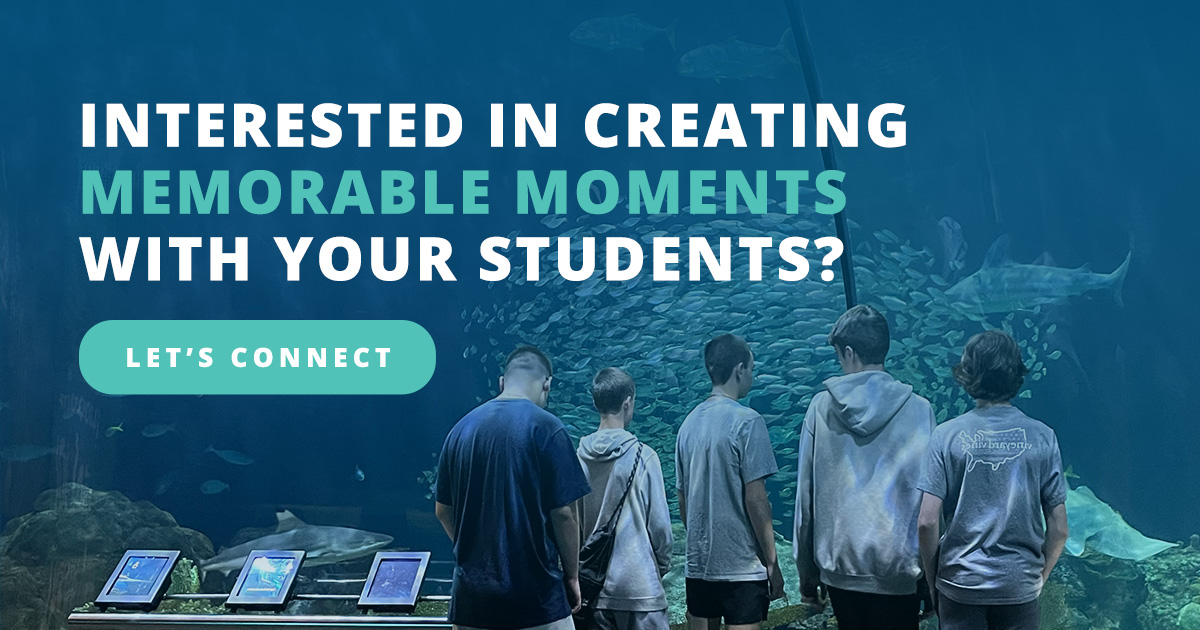Every educator knows that creating exceptional and educational student travel experiences is much more involved than booking a bus and grabbing a map. Planning and preparation are essential.
We reached out to our clients and asked for their tried-and-true student travel best practices. Here are the Top 5 Tips.
1. Research Your Destination
“Always consider where you’re traveling and how it will properly accentuate what you already are teaching,” said Lyle Sobba from Garden City High School in Kansas. “Our ability to reach students is directly related to the experiences we give them. Is it real? Is it authentic? Is it an experience students will talk about to their own kids?”
Every destination offers unique educational experiences and learning moments.
Dennis Kerr from Conway Springs Music Department in Kansas travels with students for performance opportunities, and he always discusses the historical significance of the location to music and education. In addition to honing performance skills, he also plans for students to learn about history, architecture, literature, art, math and science.
2. Involve Students in the Planning
“Talk with your students about what they want from the trip,” said Mike Peterson from Clarkston Choirs in Michigan. “Is it a cultural trip, performing trip, or a mix of both? Create the trip with your students and the tour director.”
Eric Hansen from Harper Creek High School Choirs in Michigan notes to be open-minded about what is important or meaningful to students, but stress the reason for the trip—whether that’s cultural immersion, a performance or another educational experience.
“Students should be allowed input, but not control,” he said.
Although, students may surprise you with their suggestions and preferences. “It was an amazing moment when the first group said ‘we want to visit the museum versus the amusement park.’ It was a definite victory for me as a director.”
You could also ask for input from colleagues, parents and the administration—and don’t forget your tour company. “You need to rely on the experience and expertise of your tour company staff,” Hansen said.
3. Plan for Safety and Stay Busy
Safety is all about prevention, and prevention is about planning.
Set rules and expectations for student behavior ahead of the trip. Always use security guards in the hotel, and consider other aspects of the trip where security might be an issue—like walking to the bus at night.
Part of keeping students safe means keeping them busy.
“Plan your itinerary with very little down time,” said Kerr. “We all know students can find ways to, let’s say ‘explore,’ when they have unstructured time. Try to keep that to a minimum so issues can’t occur.”
4. Pilot the Trip
“Before I choose to travel with students, I always take a preview trip to the location,” said Kerr. “If possible, I stay in the hotel that will be used, but if not, I drive by the location and on occasions have had the opportunity to talk to the manager. I also get a general lay of the land so that I can scope out meeting places, potential issues with logistics, and I always go to the performance location, taking pictures or video so that I can have a visual reference to show the students.”
If you can’t physically pilot the trip, run through the trip in your mind to anticipate all situations and circumstances.
5. Remember It's Worth It
“Student travel is so important to the overall educational experience,” said Kerr. “That ‘aha’ moment when a student sees something that they have only read about or heard about, is priceless. I have students that traveled with me over 20 years ago that say their experience was one of the most memorable times in their high school career. The number of students who return to the same destination or get the travel bug to experience more would be impossible to put a number on.”
“Even when it seems there are too many roadblocks in your way to get student travel to happen, press forward,” said Paul Nielsen from Grayslake North High School in Illinois. “It’s worth all the time and energy you put into planning.”
Written by Educational Tours, Inc.







